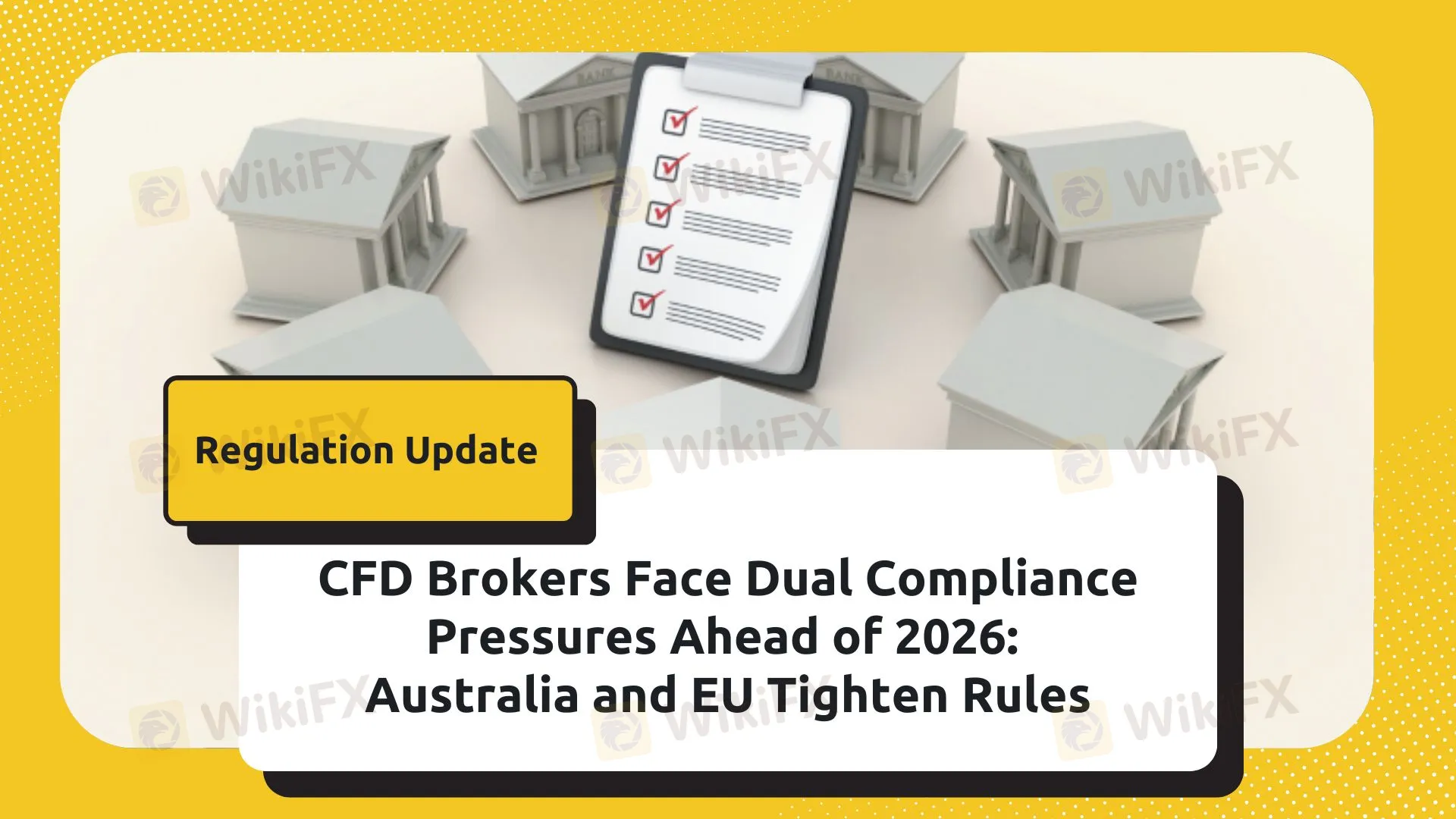Abstract:CFD brokers are under increasing regulatory pressure as Australia and the EU introduce stricter rules. ASIC’s 2026 deadline requires updated adviser qualifications, while the EU Accessibility Act mandates inclusive digital design. Firms must act now to remain compliant and competitive.

As the global regulatory landscape shifts, CFD brokers operating across Australia and the European Union are under mounting pressure to adapt. Two upcoming changes—ASIC‘s 2026 qualification deadline and the EU’s Accessibility Act—are poised to reshape how brokers manage compliance and digital infrastructure.
Australia‘s ASIC Sets 2026 Deadline for Adviser Qualification
For brokers licensed under Australia’s AFS regime, the countdown has begun. The Australian Securities and Investments Commission (ASIC) will enforce new educational standards for financial advisers by January 2026. All CFD brokers must ensure their representatives meet updated qualifications, or risk regulatory action.
This rule targets both new advisers entering the industry and current staff who must upgrade credentials. ASIC also emphasizes record accuracy, urging firms to audit adviser data and address inconsistencies proactively. Delays could lead to licence complications, compliance breaches, or customer complaints.
EUs Accessibility Act Demands Inclusive Digital Platforms
In the European Union, a separate regulation is reshaping the expectations for fintech platforms: the EU Accessibility Act (EAA). Effective from mid-2025, this law mandates that all digital services—particularly those targeting EU retail clients—must be fully accessible to users with disabilities.
For CFD brokers, this means redesigning login interfaces, dashboards, educational content, and payment flows to meet inclusive standards. Accessibility is no longer a design afterthought; its now a regulatory requirement with enforcement implications. Platforms that fail to comply risk fines, legal disputes, and reputational harm in key EU markets like Germany, France, and Spain.
User Protection Now at the Forefront of EU Scrutiny
Adding urgency, Frances financial regulator AMF recently released a survey showing widespread dissatisfaction with CFD trading platforms. Complaints ranged from poorly displayed risk warnings and hidden fees to hard-to-navigate user interfaces. Brokers seeking to build trust in EU markets must now align their services with both accessibility and transparency standards.
These findings further suggest that accessibility is not just about legal compliance but also about improving customer experience and conversion rates—both crucial metrics for long-term SEO and brand performance.
Conclusion
Whether in Australia or the EU, 2026 marks a critical juncture for CFD brokers. Regulatory compliance is no longer limited to product disclosures or capital requirements. Today, firms must also demonstrate digital inclusivity, adviser professionalism, and ethical platform design.








